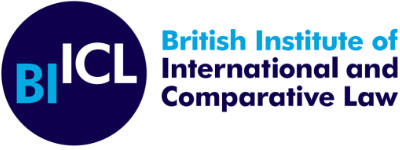France National Conference & Europe Regional Summit
The European Regional Summit will be take place over two days, 30 September - 1 October and will be hybrid in format. The event will be hosted by Aix-Marseille Université. Participation is also possible over Zoom.
To register to participate please email inscription.colloque.ceric@gmail.com.
The conference, Climate Change Litigation and Corporations. Comparative Perspectives in France and Europe, will examine the main issues raised by climate litigation involving corporations in France and Europe from these three perspectives, questioning the invoked legal grounds, evidentiary challenges, pursued objectives, and emerging trends.
For more details of the topic that will be discussed, please see the programme below.

Please download the national reports ahead of the summit
Programme
Day 1 Monday 30 September 2024
08:45 - Registration
09:00 - Introduction
Morning Session: Diversity of Legal Grounds
09:15 - Roundtable 1: Revisiting Classic Legal Grounds
- Chair: Mathilde HAUTEREAU-BOUTONNET, Aix-Marseille Université
- Elbert DE JONG, Université d'Utrecht
- Anne STEVIGNON, Notre Affaire à Tous
- Sophia SCHWEMMER, Université d'Heidelberg
- Delphine MISONNE, Université de Louvain
Based on judged and pending litigation, this first roundtable will discuss the relevance of classic legal grounds applied to climate litigation involving corporations. This is the case in civil law countries regarding certain grounds of civil liability, particularly the potential of tort of negligence in France, Belgium, and the Netherlands, and the protection of the plaintiff's subjective rights in Germany. The roundtable will also consider the possible extension of legal, statutory or jurisprudential obligations to new climate duties, notably for corporations.
11:00 - Roundtable 2: Mobilising New Legal Grounds
- Chair: Annalisa SAVARESI, Université de Stirling et Université de la Finlande orientale
- Pauline ABADIE, Université Paris-Saclay
- Theresa HÖßL, Université d'Heidelberg
- Clémentine BALDON, Baldon Avocats
- Jasper TEULINGS, Climate Litigation Network
Environmental and climate litigation today involves legal grounds stemming from economic law and business practices. This includes the 2017 French and 2021 German laws on due diligence and human rights within corporate groups and global value chains, as well as consumer protection law and unfair commercial practices used to combat greenwashing. These new or renewed legal grounds are not yet stabilised, and given the particularities of environmental and climate issues, numerous challenges remain. These will be at the core of the second roundtable.
Afternoon Session: The Challenge of Evidence
14:00 - Roundtable 1: Mobilising Science in Climate Justice
- Chair: Sandrine MALJEAN-DUBOIS, Aix-Marseille Université
- Yann ROBIOU DU PONT, Université d'Utrecht
- Christophe TRAÏNI, Sciences Po Aix
- César DUGAST, Carbone 4
- Sébastien MABILE, Seattle Avocats
This roundtable examines how science is mobilised in climate litigation. The discussions will focus on central notions in arguments that the law struggles to appropriate. What is a carbon footprint? What is a "decarbonization trajectory"? What does "alignment with the Paris Agreement" mean? Corporate climate neutrality? What about compensation? How are transition scenarios (prospective) constructed and how strong are they? What advances have been made in attribution science, and how useful can they be for jurists? Also, who are the "experts" consulted by the parties? How do they work? How are they funded and governed? Adapting scientific discourse for judicial purposes and empirically evaluating the role of science in judgment will be central to these reflections.
15:45 - Roundtable 2: Tools and Concepts to Understand, Convince and Judge
- Chair: Eva LEIN, Université de Lausanne, BIICL
- Gabriel STETTLER, Université Paris 2 Panthéon-Assas
- Attilio PISANO, Université du Salento
- Laura CANALI, Université de Nîmes
- Camille MARTINI, Aix-Marseille Université/Université Laval
Climate litigation raises issues of evidence - factual evidence and legal evidence. Tools to understand, convince, and judge exist. While evidence law provides rules for presumption, judges and parties can call on experts. Recently, we have seen the use of amicus curiae to inform the court on the meaning and scope of new legal rules or the issuance of in futurum measures like discovery. Legal scholarship also plays a significant role in trials. What information tools are available to the parties and the judge? How are they used in climate litigation to establish the existence of diffuse, incremental, and global harm? What about causality? This second roundtable will shed light on the mobilisation of these tools.
Day 2 Tuesday 1 October 2024
Morning Session: Remedies and Litigious Perspectives
09:00 - Roundtable 1: Remedies
- Chair: Ivano ALOGNA, BIICL
- Mathilde HAUTEREAU-BOUTONNET, Aix-Marseille Université
- Marta ZAMORSKA, Université de Lausanne
- Kim BOUWER, Université de Durham
- Stéphane DÉTRAZ, Université Paris-Saclay
What remedies do plaintiffs hope to obtain? The diversity is evident in various climate lawsuits. Plaintiffs seek annulment of authorizations to operate, deforest, build, etc., injunctions to adopt and implement a business strategy compatible with the Paris Agreement, cessation measures for certain projects deemed harmful to the climate, permission to represent the company to sue its directors, or compensation for damages caused to individuals. This raises multiple questions: what powers do judges exactly have to grant such remedies? How is urgency considered? What damages need to be repaired or prevented, and who are the victims? Beyond civil remedies, criminal penalties could also be prescribed. Are there specific offenses adapted to climate change? What sanctions could judges pronounce and through what procedure? More broadly, what advantages could climate criminal law present? Based on ongoing litigation, these questions will be central to this first roundtable.
10:45 - Roundtable 2: Litigious Perspectives
- Chair: Pauline ABADIE, Université Paris-Saclay
- Maria-José AZAR BAUD, Université Paris-Saclay
- Laurent SAENKO, Aix-Marseille Université
- Isabelle GROSSI, Aix-Marseille Université
- Rosa MANZO, Université d'Oslo
In climate matters, litigious developments are moving in all directions. What are the latest trends? For example, given the specificities of climate change and its effects, isn't a class action a natural litigious path? What about directors who have been negligent in addressing climate issues - could their personal liability be engaged? And shareholders - do investors also have duties? Besides divestment, what about using their political rights? Another trend highlighted in the 2023 UN report on climate litigation is "backlash cases," which involve lawsuits initiated by companies against environmental activists and other public debate participants, as well as against states or investors concerned with ESG issues. Moreover, since climate change affects populations inequitably in a socially unequal context, questions of effort distribution, vulnerability consideration, and inter- and intra-generational ethics will need legal and judicial answers. This second roundtable will analyse these weak signals and shed light on emerging trends that will shape the climate litigation of tomorrow.
